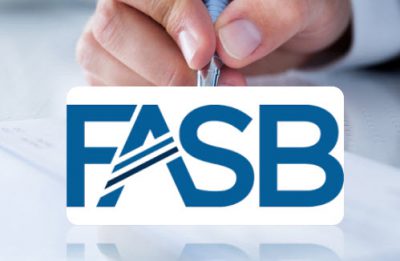
In the past week, the FASB issued two new ASUs, bringing the total of Updates issued in the first two months of the year up to six, as compared to two Updates issued by this time last year. The first recently issued Update clarified existing accounting guidance related to derecognition of nonfinancial assets, namely real estate, while the second Update deals with the presentation and disclosure of investments in master trusts by employee benefit plans.
ASU No. 2017-05
In February 2017, the FASB issued ASU No. 2017-05: Other Income- Gains and Losses from the Derecognition of Nonfinancial Assets (Subtopic 610-20): Clarifying he Scope of Asset Derecognition Guidance and Accounting for Partial Sales of Nonfinancial Assets (ASU No. 2017-05). This Update clarified guidance originally issued in ASU No. 2014-09, Revenue from Contracts with Customers (Topic 606). ASU No. 2014-09 added Subtopic ASC 610-20, Other Income – Gains and Losses from the Derecognition of Nonfinancial Assets. This new guidance aligned the guidance related to the transfer of nonfinancial assets, such as real estate, with that of revenue transactions, found in Topic 6o6. However, as issued, Subtopic 610-20 did not define certain terms such as “in substance nonfinancial asset’ which are used in the Subtopic and did not provide guidance related to partial sale transactions of such nonfinancial assets. The FASB issued ASU No. 2017-05 to clarify the new guidance in Subtopic 610-20.
First, the Update clarifies the scope of Subtopic 610-20 as applying only when other specific guidance does not apply.
Next, the Update defines a “in-substance nonfinancial asset” as a financial asset promised to a counterparty in a contract where substantially all of the fair value of the assets is concentrated in nonfinancial assets.
Additionally, with the effective date of Subtopic 610-20, the real estate sales guidance in ASC 360-20 is eliminated. Sales and partial sales of real estate assets will now have the same derecognition model as all other nonfinancial and in-substance nonfinancial assets. Such sales of assets which constitute a business or nonprofit activity would follow the guidance in Topic 810, Consolidation, while such transactions which do not constitute a business will follow the guidance in Subtopic 610-20.
Lastly, the Update also provides guidance on accounting for partial sales of nonfinancial asset. A partial sale occurs when an entity transfers its controlling interest in a nonfinancial asset to a counterparty but retains a noncontrolling interest in the nonfinancial asset. Under this Update, the entity would measure the retained interest at fair value, similar to guidance for the sale of a business. This would result in full gain or loss recognition upon the sale, as opposed to current industry specific guidance, which requires the measurement of such interest at carry-over basis, with a gain or loss recognized.
The amendments in ASU No. 2017-05 are effective at the same time as those in ASC Topic 606.
Subtopic 610-20 applies the principles in Topic 606 to asset sales. You can understand these better by taking registering for Surgent’s upcoming webinar: Guide to the New Revenue Recognition Model for All CPAs.
ASU No. 2017-06
In February 2017, the FASB issued ASU No. 2017-06, Plan Accounting: Defined Benefit Pension Plans (Topic 960), Defined Contribution Pension Plans (Topic 962) and Health and Welfare Benefit Plans (Topic 965) – Employee Benefit Plan Master Trust Reporting.
This Update changes the presentation and disclosure requirements for benefit plans who invest in master trusts. Master trusts are those for which a regulated financial institute, such as a bank, serves as a trustee or custodian and in which assets of more than one plan sponsored by a single or group of employers under common control are held. The concern that led to this Update is that as these plans were only part-owners of the trust, current presentation and disclosure was not sufficient regarding the plan investments in master trusts.
Under the amendments in this Update, for each master trust in which a plan holds an interest, the investment in the master trust is presented as a single line item in the statement of net assets available for benefits and in the statement of changes in net assets available for benefits.
This Update also removes the requirement for defined benefit and contribution plans to disclose the percentage interest which the plan has in the master trust for plans with divided interests in the master trust. Such an interest is where the plan has a specific, rather than proportional, interest in the master trust. However, these plans, as well as health and welfare plans, must disclose the dollar amount of their interest in each of the general types of investments of the master trust. This disclosure supplements the current disclosure requirement to disclose the master trust’s balances in each type of investment.
Further, the Update requires plans to disclose their master trust’s other asset and liability balances and the dollar amount of the plan’s interest in each of those balances and also allows 401(h) health and welfare plans to eliminate duplicative disclosures found in other benefit plans. However, the health and welfare plan must disclose the name of the defined benefit pension plan in which those investment disclosures are provided.
The amendments in this Update are effective for fiscal years beginning after December 15, 2018, with early adoption permitted and should be applied on a retrospective basis in the financial statements for each year presented.
Stay up-to-date on all Updates by registering for a 2017 Unlimited Course Package.
Rich Daisley is Senior Director, Accounting and Financial Reporting Content for Surgent Professional Education. With over 26 years of experience in the accounting and auditing field, Mr. Daisley has worked in both the client service setting, mainly for PwC’s Capital Markets and Accounting Advisory Services Group and for PECO Energy’s Merger and Acquisition Group, and in the internal capacity setting as a course developer and facilitator creating leading training courses for PwC and Surgent. Rich lives in suburban Philadelphia.




